Fostering Evolution in Islamic Culture
ICE White Paper by Steve McIntosh
The ongoing rise of radical Islamism in the twenty-first century is a difficult and dire problem, for which cultural evolution is really the only viable permanent solution. But to overcome this growing threat to world peace and security, not only will Muslims themselves need to evolve, the developed world as a whole will need to grow and mature into a more moral form of civilization. Recognizing how the challenges of militant Islamism can serve as a powerful stimulus for the further evolution of all the forms of culture that are contributing to the problem—pre-modernity, modernity, and postmodernity—is the focus of this paper by ICE President Steve McIntosh.
Building on the work of moderate Muslim intellectuals, McIntosh argues that the Islamic cultural reform needed to overcome radical Islamism depends on the underlying reform of the religion of Islam itself. Yet in order to persuade moderate Muslims to reform their religion, the necessary vision of a reformed Islam must retain the deeply spiritual convictions upon which Islam is founded.
Muslims are arguably the most religiously devout people in the world. And their stalwart faith prevents them from settling for a secular, watered-down version of Islam as the future course of their religion’s development. In order for a reformed version of Islam to be sufficiently attractive to Muslims so as to persuade them to transfer their loyalties to a more modernist-friendly form of their faith, a post-secular cultural perspective will be necessary. In response to this challenge, the evolutionary worldview advocated by ICE can provide just the kind of post-secular understanding of the evolution of human faith that is needed to foster the reform of this venerable religion. Below is a 35 minute audio interview on the paper.

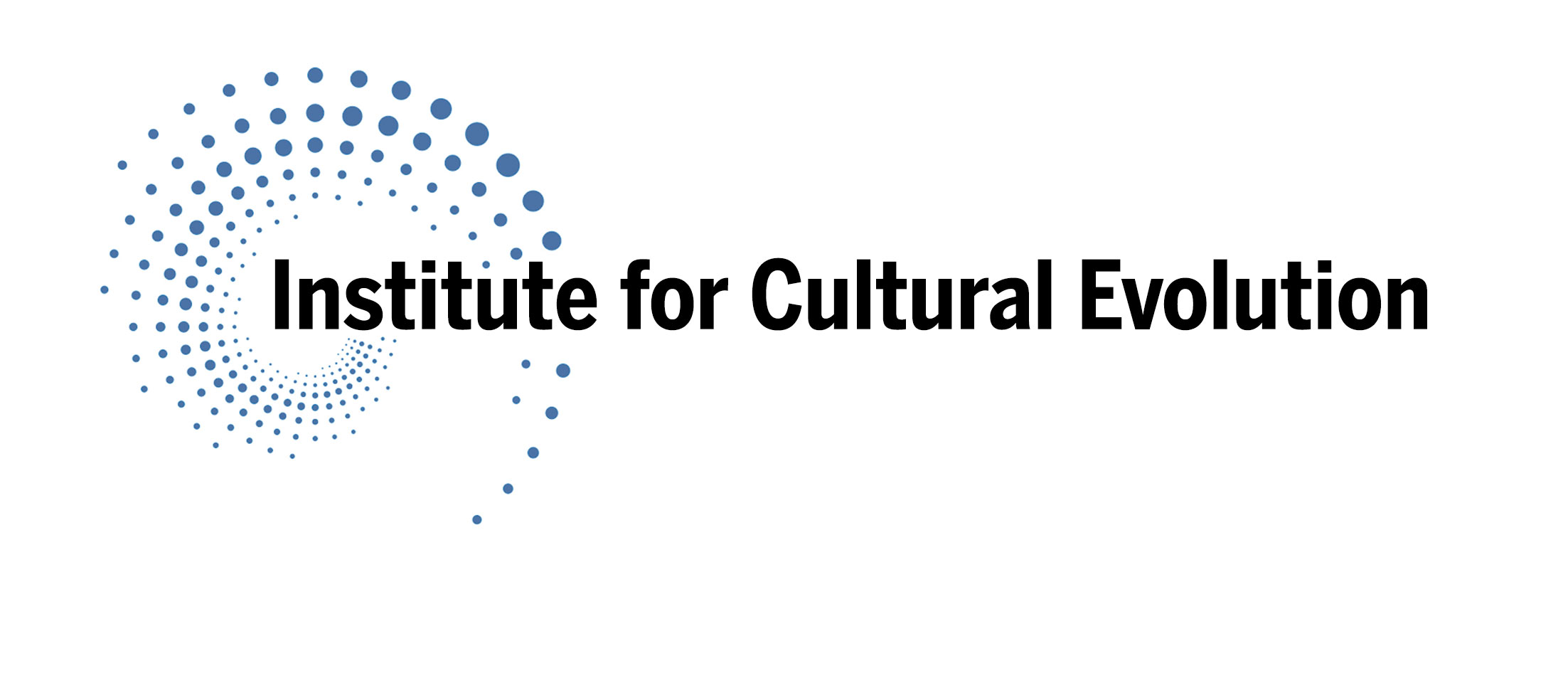
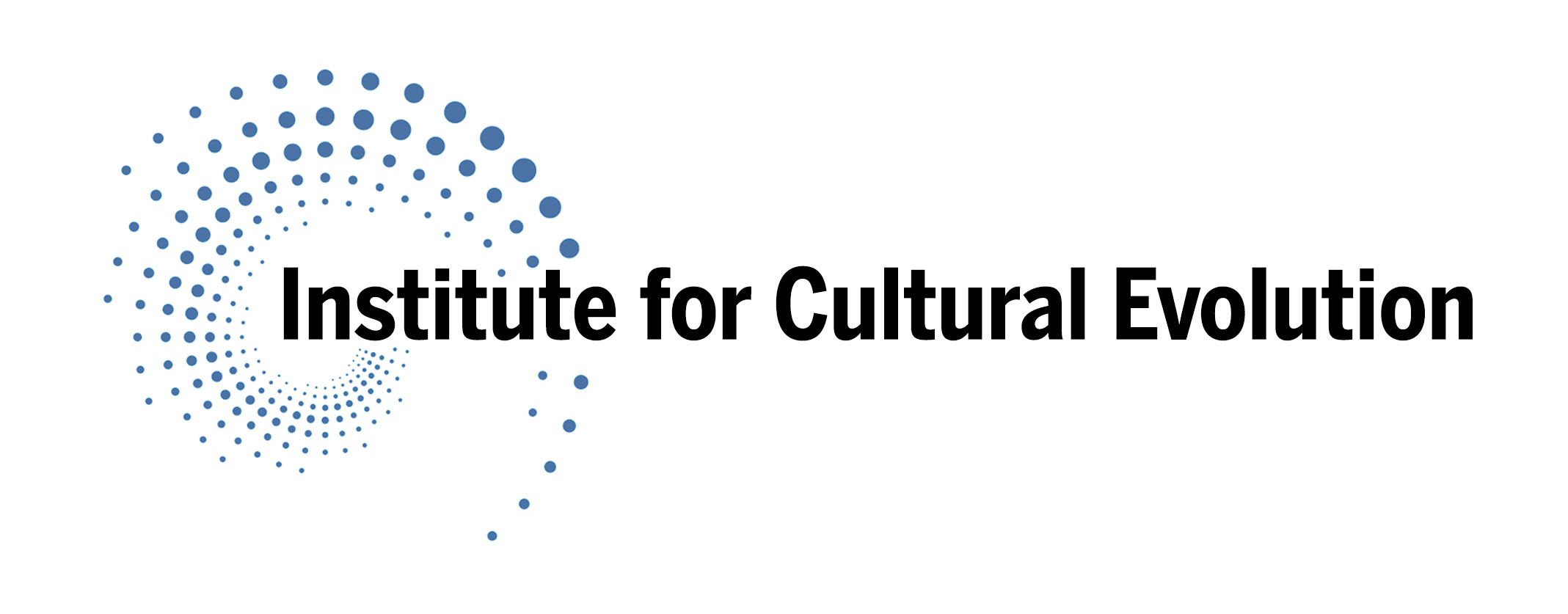

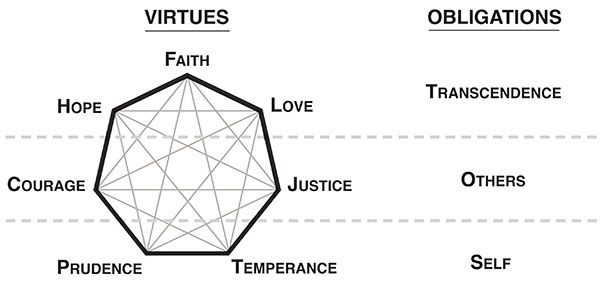
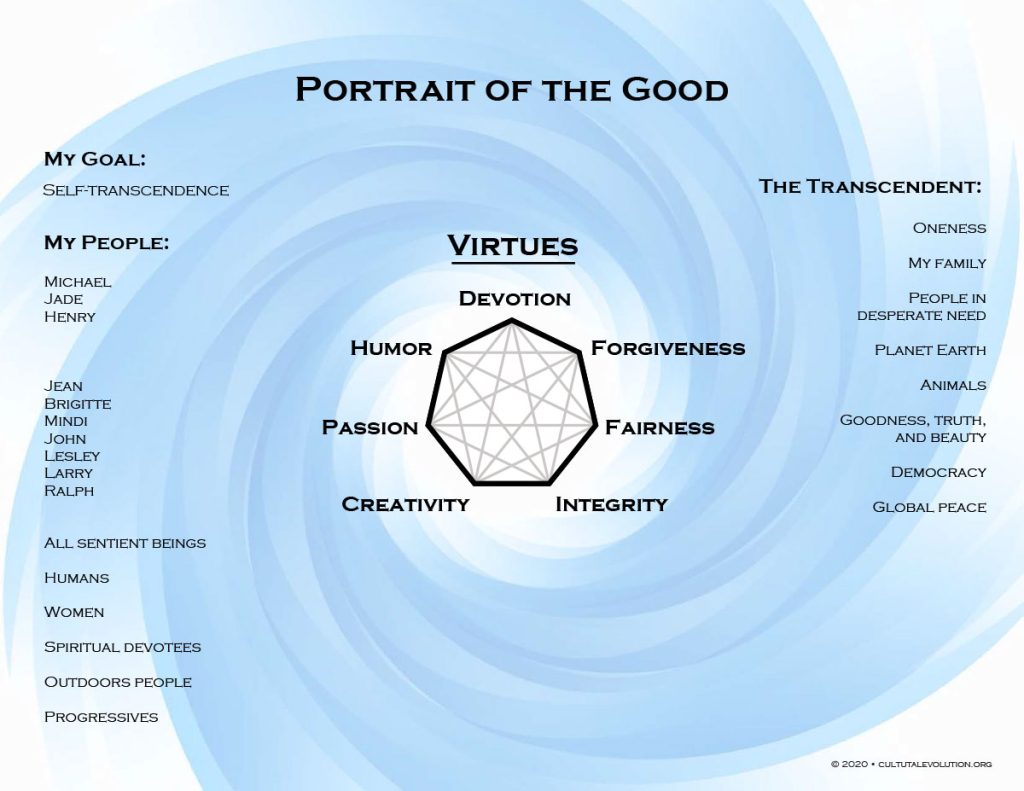
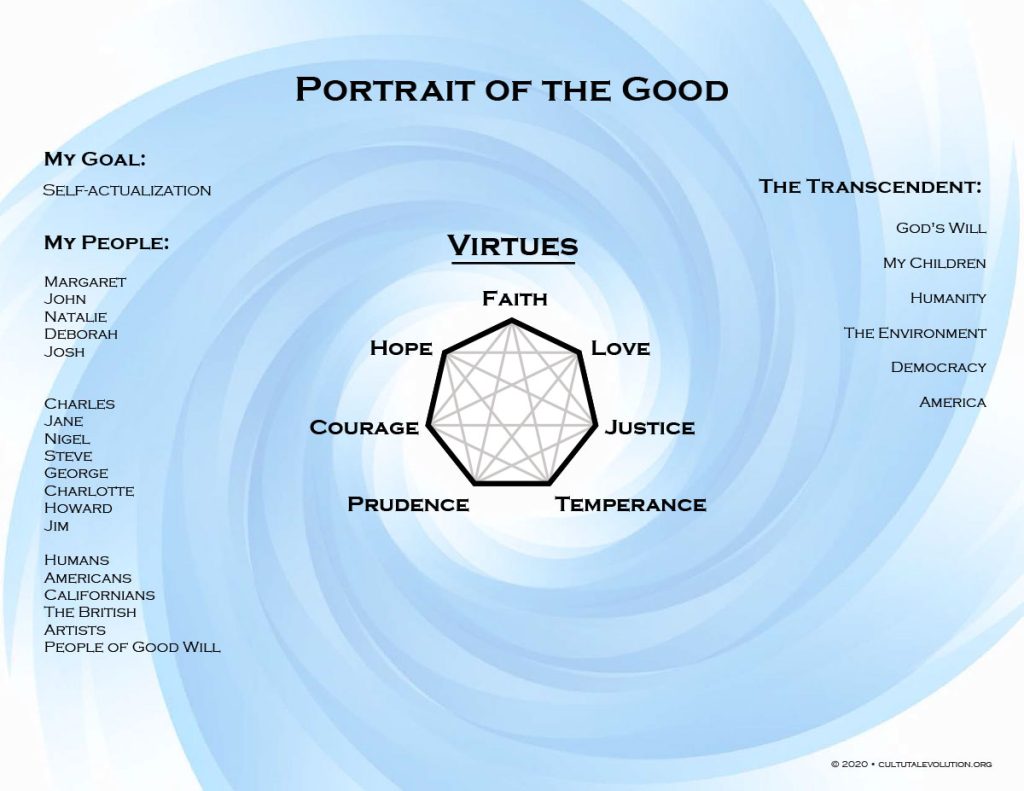
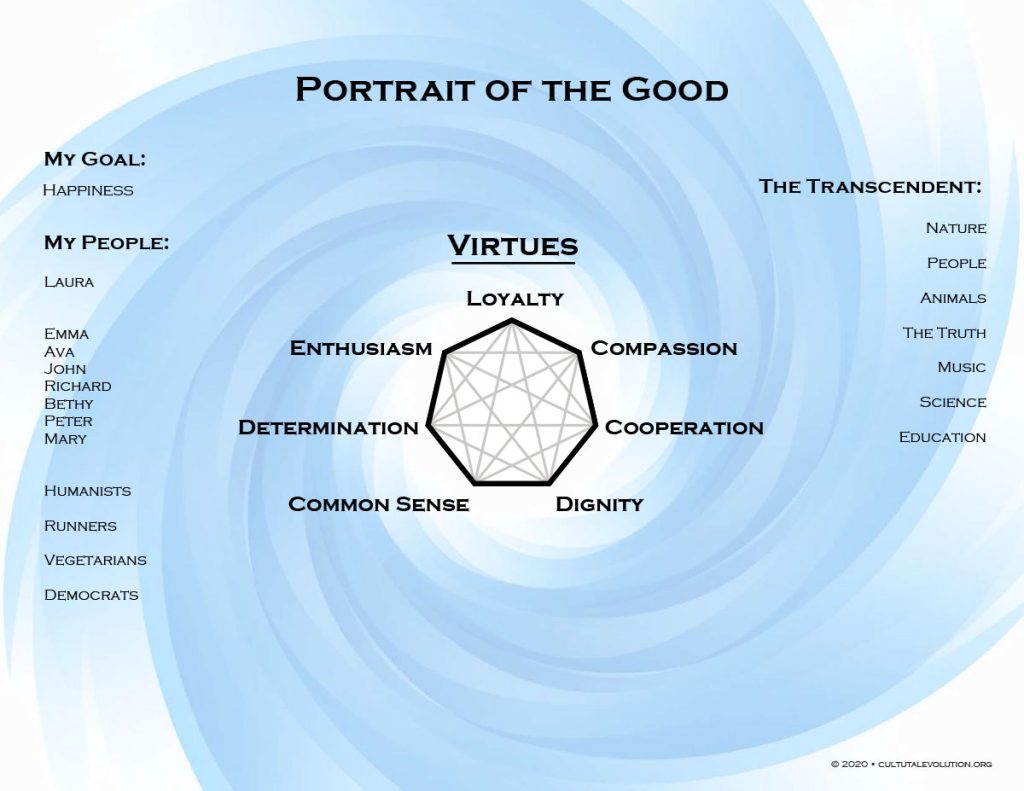
You talk about Islam as if there is only ONE Islam. Like in Christianity, there are dozens of interpretations of Islam and there are dozens of Sects. Radical Muslims, whether Shia or Sunni, are less than 1% of Muslim population of the entire world. Without appreciation of this obvious fact, the discussion you propose has no starting point.
Sufism ( the religion of Jalaludin Rumi) also comprises a small percentage of Muslims but is a highly developed understanding of Islam. It is also a great example for majority Muslims to look at and see how they could modify their own interpretation of Islam. What Muslims need is a finer interpretation of the Quran – not a reformation. Well meaning outsiders like Steve also have to appreciate this point. If Steve accepts this, the dialogue with Muslims will be more constructive.
Wow serious brain trust going on here. I’m still reading polarity theory to political progress evolving Rt n lft.im on my third read and will probably have to read it two more times to fully grasp its dimensions, though I see many applications here as well as many other subjects. Just in reading the comments on this paper I am instantly impressed for the need of a treatise on the extremities of American Christianity; we plucking out a nat while we swallow the camel. I am literally afraid of speaking over my head here because of the deep resonance and insight of your commenters esp. Omar Ali, Ann C Sanders point 3, and Aterah Nusrat. This subject is in good hands as I’m sure more thoughtful intelligences will be drawn to it. The world needs this and so do we. I can’t wait to see more attention brought to polarity politics. Reading these comments, comparatively, mine are flippant and cursory. With great humility and hope thank you N.S.Shoemaker
I like to read Neale Walsch. He and other spiritual people claim that acts of violence, violent ideologies or violent religions most often are a result of people lacking contact with their higher self.
So the cure for a lot of the problems in the Middle East would be to give people methods which can help them find their inner self.
…
…
Modernity is illegitimate in the eyes of orthodox Islam, while Muslim scholars recognize the historical circumstances in response to which it developed within the Western dialectic. Islam has its own set of values that are independent of the Integral model’s stages of development. … Please, don’t think the Bard can hold candle to the Poet. Turkey is not as Islamic state. There are no real Islamic states in the world today. There are only Muslim majority nations. No real Muslim will engage in inventing a “modern friendly” version of Islam. In order for Muslim to start functioning at an Integral level of consciousness they only need return to a completely orthodox Practice of their faith. The faith conveyed by the Qur’an, and its associated practices are optimal for cultivating Integral self-awareness, and developing integral cognitive functions. … There is a difference between non-duality, and Unity, or Pure Monotheism. I loved Steve’s point at the end, where he says that non-duality, and Unity can compliment each other. It was a lot to unpack there, but I believe that the both understandings aid in fully realizing our deepest existential truth. And, that is the exact formulation of the Islamic creed. “There is no Deity, except for the one Deity.” My philosophical term for the creed is Iconoclastic Transcendentalism, and the religious Pure Monotheism. Ibn Arabi is an essential reading for this made accessible William Schtick in English. Chitik’s translation will provide an existential encounter with the Integral consciousness of the classical Islamic scholar. I do agree that the Integral levels of consciousness are most well prepared to hear and respond to the actual message of Islam. I love your appreciation of Islam, and appreciate your understanding of the ideological dynamics around 27:00 onwards.
Dear Steve McIntosh,
Thank you so much for this analysis. It helps me a lot to understand and see where we can go with Islam. After reading it I immediately felt a relief being able to integrate intellectually and spiritually my experiences with esoteric Islam.
…
You stated “Jihadi terrorism presents a severe threat to the religion of Islam itself, so the fact that this horrendous “insult to their religion” does not inspire protest is a clear sign of cultural support for militant Islam within major segments of the Muslim World overall.
1. Most Muslims will tell you that nothing presents a threat to Islam. This might not make sense to you, and yet it is what Muslims believe. Muslims may come and go, Muslims may be threatened, but Islam will remain somewhere, if only in the hearts of believers, all believers. (I will leave it to you to research believers as referenced in the Qur’an).
2. Jihadi terrorism is an insult to many Muslims because it reflects an ignorance of guidance available to anyone who reads Al Qur’an. And too, given the great many scholarly works on Islam, the Prophet Muhammad, not to mention the signs within all of creation, such behavior from people who call themselves Muslims is horrible.
3. And too, should Jihadi terrorism also be the shame of Western powers, which supported dictatorships, undermined economies, spread racism to dominate the world, leaving the people of those countries vulnerable to ignorance and manipulation, and clearly “terrorism” as a last resort.
3. Suggesting that a lack of inspired protesters is a clear sign of cultural support for militant Islamism within major segments of the Muslim World, feels like you are painting with a very broad brush or stereotyping. Could it be, that the Muslim way of life suggests that we look for ways to contribute to our local communities, and if the opportunity to contribute on a larger stage presents itself, to step up and do that as well?
4. Protest in the 21st Century often creates media attention, but they rarely, if ever, fix things or lead to solutions, as it did, to an extent in the 1960’s. Two of the many things I learned about Al Islam, which led to my embracing Islam, include the focus on personal responsibility for the whole, and right actions. In Al Islam, there is a recognition that good deeds are impacting the whole, even if we do not see the impact .
5. One might ask…”but wouldn’t a protest show that “mainstream Muslims” do not approve?” The terrorists already know that we do not approve. How so? They know because Muslims around the world have not dropped everything to follow them. The ones who follow are the immature and or the ignorant because they lack awareness, knowledge and or maturity in their relationship to the guidance, and G_d.
Your observations regarding the struggle of some Muslims with modernity feels accurate, and too, how much of the struggle is based on a misunderstanding of what a particular “modern issue represents”?
…
I do feel that Learning to Love Islam is at least part of the answer. The other part feels like it is fractured into many separate parts, each controlled by ego, and waiting for us to see through the illusion.
Respectfully,
Ann C. Saunders
Hi Steve,
Thanks so much for this white paper. As a British-born Muslim who spent the better part of the last 20 years engaged with evolutionary spirituality (in the form of evolutionary enlightenment,) your paper speaks directly to my own interest in finding a deeper integration between these two powerful spiritual influences in my life. You articulate and touch on so many important threads—the historical trajectory, the current crisis with Islam, and the potential for both Muslims and non-Muslims alike to create a more stable platform for Islam to evolve.
I appreciate how you illuminate the dynamics between pre-modern, modern and postmodern cultural values, which create a complex picture. And how post-postmodern spirituality allows for theism to renter the spiritual milieu—not just in relationship to Islam, but for the evolution of human faith as a whole. Personally, I know this is what pulled me towards evolutionary enlightenment. Going from traditional Islam, which was still at odds with modernity, I was looking for something that didn’t negate the direct relationship to God, that you beautifully layout in your piece, but that also spoke more directly to my postmodern cultural values. Your paper makes sense of this.
I agree with the need for contemporary interpretations of Islam which make it more compatible with the positive values of modernity. I think you correctly point out that it is the center of gravity of the Muslim community at large in relationship to Western expressions of modernity, and not just the views of some isolated fundamentalists that are allowing the extreme acts of violence that we see on the news today.
I also particularly appreciated how you showed that it is not unheard of to witness contemporary interpretations of the teachings of Islam This gives me hope! Not only was religious questioning and reinterpretation the currency of the Golden Age, but as you said, this is also ironically demonstrated by the very emergence of more fundamentalist interpretations today:
[If Islam can ‘go backward’ in response to modernity, it can also find a way to go forward to a new era of peace and global cooperation’]
I will certainly be re-reading your paper multiple times, and I’ve posted it as a resource on my new blog that I’ve literally just started, regarding my own exploration of this theme (evolveability.org).
Lastly, I appreciate that ‘actionable’ items were beyond the scope of your paper, and for the time being making connections with other thinkers and reformers also pursuing these lines of thinking would be invaluable. You mention there are a few leaders in the evolutionary spirituality movement who consider themselves Muslim. I am aware of a few, but would be very interested to learn of more.
Thank you Steve. I hope this grounded and encouraging message can reach a wide audience at this precarious time.
i would like to say that I greatly appreciate this writing and all its insight. It provides hope through the posability of reconciliation of stages despite the wide gaps in understanding and levels. It also is exciting because despite the more acute our understanding of levels stages and their aspects we still can only put our best effort forward and sit back and watch to see how it will all unfold. Thank you for pushing the envelope of understanding in this realm of political and religous thought, I am truly in need of this form of evolution and understanding though I am uncertian what I am supposed to do with the knowledge and understanding since there are so few and none in my immediate circles who are able to understand and discuss these aspects of development at this point in their life. With out all of the Intergral teachings in various realms of thought, I would seriously struggle in life, feeling I was all alone, unable to articulate my feelings there was more then what others where teaching me.
I am quite pleased to see Steve and ICE tackle one of the major challenges of our time. As I have read story after story regarding the ascent of Islamic radicalism and ISIS, I have struggled to comment (limited by that format) to call for an Islamic reformation, as Steve has done with this excellent paper. A recent article by a fellow student of “Jihadi John” points out what Steve has articulated in his paper – there is a clash of pre-modern, modern, and post-modern values and his paper has outlined how this clash is at the heart of the struggle before the world. See the article: http://www.washingtonpost.com/opinions/jihadi-john-a-graduate-of-my-radical-university/2015/02/27/2e36ea64-bde4-11e4-8668-4e7ba8439ca6_story.html. In commenting on the article, I said: “This article, and the comments section for it, show the enormous challenge the world is now facing. It is a cultural/worldview clash that can not easily be reconciled. At Westminister, you have the clash of pre-modern/tradtional (Islamic/Sharia), modern (reformation-enlightenment-Science), and post-modern (multi-cultural) thought. The Islamic youth that are choosing ISIL are doing so because they have not been integrated into Western (modern/post-modern) culture.” As Steve’s paper points out, they are actually rejecting modernity using arguments from post-modernists.
It is great to now have this paper and the on-going work of ICE to point to as a way forward to begin the necessary process of cultural evolution within Islamic culture. I look forward to future progess in this area.
Hi Steve,
You have brought up many thought provoking points about the evolution of Islam. Traditional Muslims are so devoted to their religion, that they have a fear of embracing modernism, and for an understandable reason- an embrace of modernism would mean to give up everything that is important to them. An Islamic embrace of modernism asks Muslims to, in a way, commit suicide. Of course, many Muslims would have a hard time doing this, because they are so devoted to God.
There are two points that I loved about this article, including:
1) Muslims themselves must differentiate and protest against extremists, terrorists. As you say “Radical Islam will only be defeated when the vast majority of muslims are no longer willing to tolerate it.”
2) Modern secular and post-secular society has to start learning how to love Islam, not just tolerate and respect it. I love how you use the term “love,” as its a term often neglected by theorists. But love is the correct term here, and I can envision a more beautiful post-secular society that really affirms Islam and integrates it into the contemporary world. We would have all the benefits of Islam and all the benefits of modernism. Muslims will no longer have to fear losing their life and culture to the contemporary world, and the contemporary world would be all the more good, true, and beautiful.
Great article, look forward to hearing more when your new book comes out.
-Matt Rosenblum
Agreement on this need is timely. Evolution seems to have its’ own time line, however it appears even the Roman Catholic Church is at its’ beginning stages of adjusting to the time. Participation with education will certainly provide such positive movement !
I have just finished reading this document. My heart is deeply touched with profound gratitude for how Steve has presented the step by step healing for the Islamic Culture and for the whole world. Will be with all of you in thought on April 23, as you gather for the public lectures and discussions. Steve McIntosh and Carter Phipps are top drawer spiritual men in my book as this is a grand example of their caring for life not as it is but as they have the vision it can be.
Dear Steven Mcintosh,
I appreciate your pledge for an cultural solution for the problems raised by fundamentalistic islam in the form of evolutionary spirituality.
I do not agree that a change of collective consciousness can originate from there. Nor that this comes about by the dialectic proces only. There is more truth in your oberservation of the succes of the state as an inductor for the next step.
I am in the change business: if you are interested I can mail you my latest reflections upon state changes.
Warm greetings,
Dieuwke Begemann
Chapeau! You hit the spot Steve. This is the most important paper on the future evolution Islam as yet. It is a brilliant gem that clearly shows us, the Muslims, the true path forwad.
Acquainted with your work, I guess you are interested in substansive ideas rather than compliments. Here are a few humble ones:
1) As a Westerner, you mostly focus on how the West can help Islam evolve in a more healthy manner. (As a social scientist from Turkey, I think primarily about what we ourselves should do to evolve towards a more promising direction.) To be more precise, you present both the Western and Islamic perspectives and propose a dynamic interaction among them, but put the emphasis on the former. We would further benefit from your ideas, if you in the future explore more Islamic perspectives (especially spiritual ones rather than secularist and modernist reform ideas) and delve deeper into potential synergies and mutual processes among Western and indigenous efforts.
2) As a gentleman addressing a foreign religion, you are careful not to offend anyone, hence use a polite and soft language. This is very commendable, yet at times reduces the clarity of the diagnosis regarding the grave disease at hand.
3) Perhaps by choice, you restrict your discourse to remain within the domain that would be acceptable to social science and cultural studies. This is only reasonable to address a wider audience, yet, seems at times to undervalue the spiritual dimension when it is at the root.
4) For example, you note that “religious fundamentalism … effectively extinguished the reason-friendly version of Islam …” Sure, but not only that. If you would ask me: Excessive politicization and consequent fundamentalism of Islam also extinguished the very spritual ligt at the core of this message from God! Our problems not only emanate from a lack of mind, but also and more importantly, from a lack of heart.
5) When distorted by politics, Islam proved to be a fertile ground and motivator not only for violence, but also for massive governmental corruption and theft! The AKP of Turkey clearly showed us how a single political party can, in the absence of effective opposition, have large segments of a relatively religious society tolerate and even accept corruption and stealing!
Best wishes.
Seymen Atasoy
Hi Seymen,
Thank you for your good points. Regarding point 3, I would very much like to develop the spiritual dimensions of this paper further along the lines you suggest. How much more time ICE can devote to its “Evolving Islam” campaign depends on the support we can gather from the larger marketplace of ideas. We’ll have to see whether thinking about the problem of radical Islamism from the perspective of cultural evolution will prove influential.
Best Wishes,
Steve
Time for dialogue, yes?
This is great